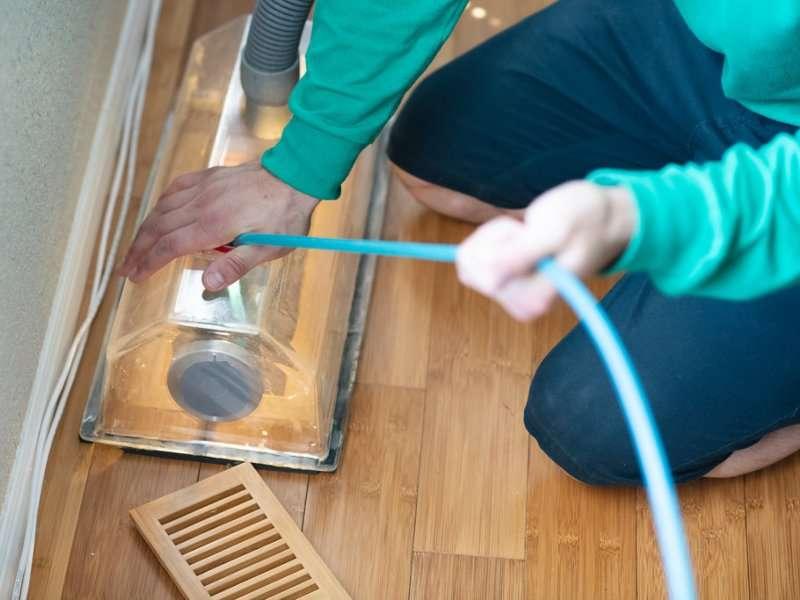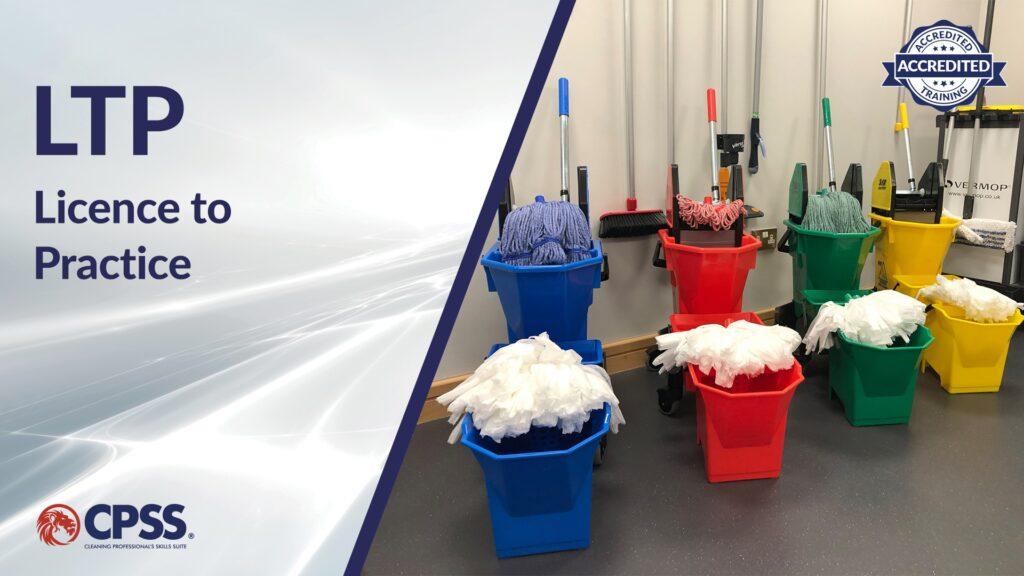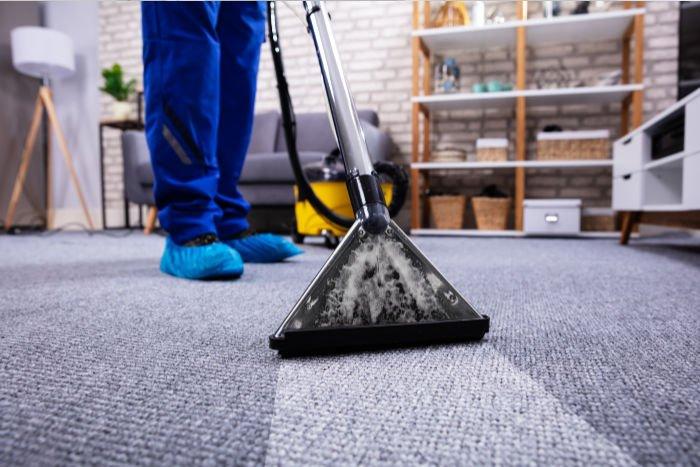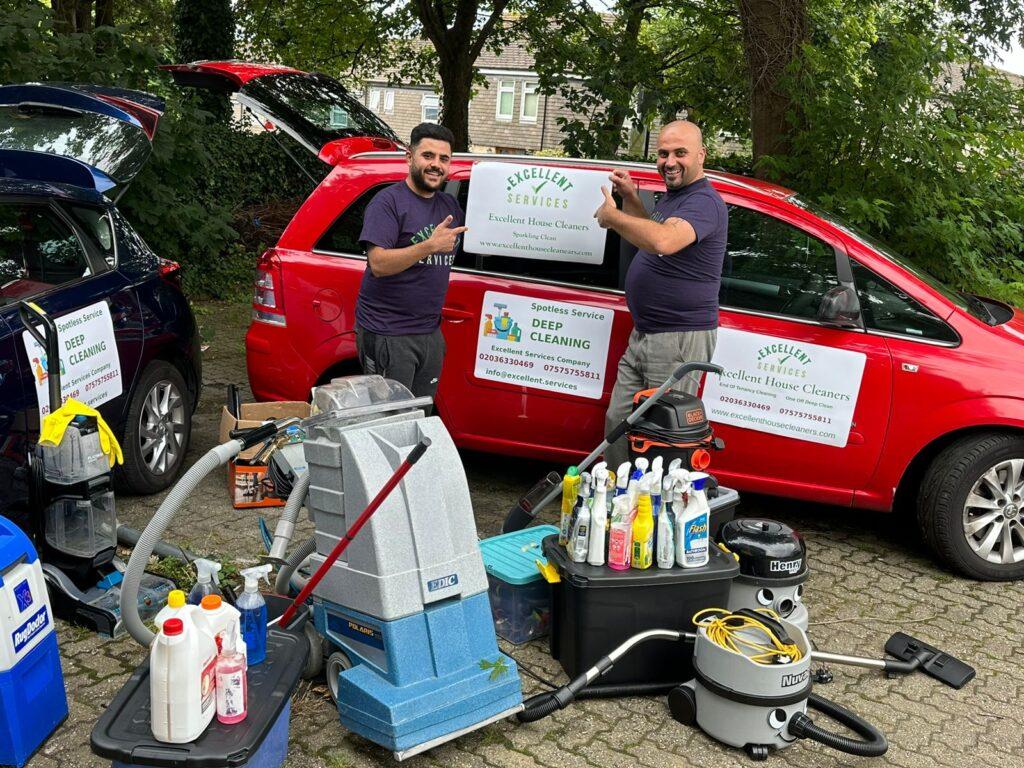
Between salt-laced sea air and the steady pulse of a working port, keeping spaces shipshape in Plymouth is both tradition and practical necessity. From waterfront flats and Victorian terraces to student houses, naval facilities, and holiday lets, the city’s patchwork of properties has shaped a diverse cleaning market-routine domestic visits, deep cleans, end-of-tenancy turnarounds, commercial contracts, eco-friendly options, and specialist services for carpets, ovens, windows, builders’ dust, and more.
This article charts that landscape with a clear, local lens. It outlines what services are commonly available in Plymouth, how seasonal demand and coastal conditions can influence schedules and scope, the standards and accreditations worth knowing, typical pricing factors, and the questions to ask before you hand over the keys. Whether you’re a landlord preparing for inventory, a business meeting compliance, or a household reclaiming precious time, consider this your compass to navigating cleaning services in Plymouth, UK.
Table of Contents
- Coastal city challenges in Plymouth UK from salt air to damp and eco safe cleaning approaches that work
- Credentials and safeguards to demand BICSc training DBS checks COSHH awareness and insured teams
- Pricing without surprises choosing between hourly deep and contract cleans with clear scopes and guarantees
- Practical recommendations for end of tenancy student lets holiday rentals and busy family homes across Plymouth
- Key Takeaways
Coastal city challenges in Plymouth UK from salt air to damp and eco safe cleaning approaches that work
Sea breezes carry microscopic salt that crusts on glass, dulls paintwork, and accelerates metal tarnish, while persistent moisture from estuary mists and sudden squalls feeds mould in corners and behind furniture. In this setting, durability hinges on gentle routines: regular freshwater rinses to displace salt, low‑toxicity detergents that won’t harm the Sound, and moisture control that keeps relative humidity around 50-55%. Plymouth’s mix of modern flats and granite-fronted terraces benefits from light, frequent care over harsh, occasional scrubbing-protecting finishes, preserving indoor air quality, and respecting the coastline you live beside.
- Salt film on windows and frames: Wipe with a microfibre cloth dampened in warm water and a splash of white vinegar (safe for glass and uPVC; avoid on natural stone). Rinse and dry to prevent spotting.
- Corroding door handles and railings: Rinse with fresh water, dry thoroughly, then buff a thin layer of plant wax or food‑grade mineral oil onto stainless and chrome to create a breathable barrier.
- Damp nooks and winter condensation: Improve airflow, run a dehumidifier on auto‑mode, and clean light mould with 3% hydrogen peroxide or oxygen bleach (sodium percarbonate); ventilate well and protect nearby plants/finishes.
- Algae on render, steps, and decking: Soft‑brush with warm water and a biodegradable, phosphate‑free surfactant; treat stubborn green film with oxygen bleach, then rinse; avoid chlorine near drains.
- Sand and grit underfoot: Use coir + rubber mats inside and out, vacuum with HEPA filtration, and opt for low‑moisture floor cleaning to keep swelling and warping at bay.
Eco‑safe approaches that work blend low‑impact chemistry with prevention: microfibre for mechanical lift, pH‑neutral cleaners for everyday grime, citric‑ or carbonate‑based boosters for minerals and mildew, and steam spot‑treating where suitable. Schedule quick freshwater wash‑downs after stormy days, prioritise ventilation over fragrance, and choose marine‑safe, dye‑ and bleach‑free formulas that break down readily. Protective finishes-beeswax on wood, water‑based sealers on stone, corrosion‑inhibiting polish on metals-extend intervals between cleans and cut water use, keeping homes resilient without sending harsh residues into the harbour.
| Area | Risk | Eco‑safe method | Frequency |
|---|---|---|---|
| Windows & uPVC | Salt haze | Microfibre + warm water, vinegar rinse | Weekly; post‑storm |
| Metal fixtures | Tarnish | Freshwater rinse, dry, plant‑wax buff | Monthly |
| Bathrooms | Mould | Peroxide spray, squeegee, dehumidify | Weekly |
| Paths/decking | Algae slip | Soft‑brush, oxygen bleach, rinse | Seasonal |
| Carpets | Grit wear | HEPA vacuum, plant‑based spotter | 2-3× weekly |
Credentials and safeguards to demand BICSc training DBS checks COSHH awareness and insured teams
Trust starts with proof. In Plymouth, the best cleaning partners make their standards visible, from skills and vetting to chemical safety and cover. Ask for and verify the essentials below to protect your premises, people, and reputation, and expect clear documentation on request or before the first visit.
- BICSc-trained operatives – badge numbers or certificates, plus colour-coding and method statements.
- DBS-checked teams – recent Enhanced or Standard checks for anyone on-site, including relief staff.
- COSHH awareness – inventory of chemicals, SDS access, and site-specific risk assessments (RAMS).
- Insured service – public liability (e.g., £5m) and employers’ liability (e.g., £10m), with active policy schedule.
- Supervision and QA – periodic audits, signed checklists, and incident reporting pathways.
- Data and keys security – key control logs and GDPR-aligned handling of site information.
| What to ask | Why it matters | Proof to see |
|---|---|---|
| BICSc competence | Safe, consistent methods | Certificates, training matrix |
| DBS status | Safeguarding and trust | Valid DBS refs, policy dates |
| COSHH control | Legal compliance, safety | SDS, COSHH/RAMS pack |
| Insurance cover | Risk and liability | Policy schedule, limits |
Reputable Plymouth providers will happily share a training matrix, anonymised DBS policy, COSHH folder, and insurance schedule before onboarding. Prioritise transparency, traceability, and accountability: if documentation is vague or delayed, treat it as a red flag and choose a team whose safeguards are as spotless as their results.
Pricing without surprises choosing between hourly deep and contract cleans with clear scopes and guarantees
No guesswork, just clarity: in Plymouth you can pick the pace that suits your space-either the flexibility of an hourly deep service for heavy-lift tasks, or the predictability of a recurring contract for steady upkeep. With hourly work, you set priorities and approve a time cap before teams arrive; with a contract, you agree a fixed scope and cadence (weekly, fortnightly, or monthly) so the fee stays consistent. Scopes are written in plain language, with task lists and time estimates shared in advance, and add-ons are quoted before they’re done.
| Plan | Best For | Price Style | From | Includes | Guarantee |
|---|---|---|---|---|---|
| Hourly Deep | One-offs, targeted scrubs | Pay for time booked | £24/hr | Supplies, equipment, insurance | 48‑hour revisit on missed items |
| Contract Clean | Regular, consistent shine | Fixed monthly fee | From £60/wk | Set checklist + priority notes | Price hold & cover for absence |
- Scope sign‑off: rooms covered, appliances (oven/hob, fridge), internal windows, limescale/grout, skirtings, reachable cobwebs.
- Add‑ons (pre‑approved): carpet refresh, end‑of‑tenancy detail, balcony/terrace, bin sanitise, post‑build dust‑down.
- Local notes: parking or permit needs in The Hoe, Mutley, Plympton, and Devonport confirmed upfront.
Protections that keep costs steady include written checklists, photo sign‑off for deep work, and crystal‑clear change‑control if you alter the brief mid‑clean. Expect no hidden fees (no call‑out or fuel surprises within service zones), insured key holding for recurring clients, and simple cancellation windows. If an agent’s or landlord’s checklist is in play, we align to it before starting-so the only thing that’s unexpected is how fresh your Plymouth home feels.
- Reclean pledge: report within 48 hours; we return to resolve agreed items.
- Transparent timing: start/stop logged; caps respected unless you approve more time.
- Fair pricing: rates reviewed seasonally, not mid‑term; changes notified in writing.
- Eco options: plant‑based products available on request at the same rate.
Practical recommendations for end of tenancy student lets holiday rentals and busy family homes across Plymouth
For swift handovers and deposit-safe results in student lettings and short-stay properties, build a routine that prioritises high-visibility zones and evidence. Start with a top-down sweep: dust light fittings, wipe skirtings, then detail clean kitchens and bathrooms where most checkpoints fail. Neutral odours matter-opt for fragrance-light, hygienic finishes and photograph rooms from consistent angles to document condition. Plymouth’s sea air can leave salt haze on glass and patio doors; finish with a streak-free polish after a light vinegar solution. Streamline laundry with colour-coded bags, rotate two full linen sets, and pre-stage amenities so resets take minutes, not hours.
- Map tasks to inventory: oven, hob, fridge-freezer (defrost), shower screens, grout lines, and mattress vacuuming.
- Proof of clean: time-stamped photos before/after, plus a bin-area shot to confirm waste removal and recycling.
- Sand and grit control: slow-pass HEPA vacuuming; place dual mats at entries to catch beach debris.
- Laundry discipline: wash whites separately at care-label max; lint-trap cleared every cycle; inspect for makeup/tan transfer before drying.
- Quick reset kit: microfibre pack, glass squeegee, enzyme spot remover, neutral pH floor cleaner, spare bulbs and batteries.
| Area | Quick win | Pro note |
|---|---|---|
| Kitchen | Warm oven, gel degreaser, scrape | Swap foil liners; polish steel last |
| Bathroom | Squeegee glass, rinse walls | Oxygen bleach for silicone marks |
| Floors | Two slow HEPA passes | Edge first, then centre lanes |
| Glass | 1:4 vinegar + warm water | Microfibre in “S” pattern |
| Laundry | Two-set rotation | Bag by room to speed remake |
For busy family homes, anchor routines to real life: school runs, pets, and hobby clutter. Zone your space-entry, kitchen hub, bathrooms, and a quiet bedroom core-and protect floors from Dartmoor mud and beach sand with layered mats and a weekly micro-scrub of traffic lines. Keep a caddy per floor so essentials are always within reach, and schedule mini-resets that prevent buildup: five minutes after dinner for surfaces, a midweek touch-up of high-contact points, and a fortnightly detail on one focus area (inside appliances, window tracks, toy sanitising). Use neutral pH on natural stone, ventilate during showers to curb humidity, and rotate soft furnishings for even wear.
- Entryway reset: shake mats, empty school bags, tray for shoes and keys.
- Kitchen flow: clear sinks first, then worktops, then floors-always in that order.
- High-touch rhythm: handles, banisters, remotes midweek with a mild disinfectant.
- Pet corner: washable bed covers; brush before vacuuming to reduce hair load.
- Allergy guard: HEPA filter on during vacuuming; launder pillows monthly.
Key Takeaways
As the tide moves in and out of Plymouth Sound, the demands on homes and workplaces ebb and flow. The city’s cleaning providers span routine domestic visits, end‑of‑tenancy turnarounds for student lets, holiday rental changeovers by the waterfront, deep cleans after building works, and scheduled commercial contracts. A good choice rests on fit rather than fanfare: confirm insurance and DBS checks, review training and COSHH compliance, ask about eco‑certified products and waste disposal, and seek transparent pricing and service scopes that match your timetable.
From the Barbican to Plymstock and across to Derriford, a well‑briefed team can keep spaces ready without fuss, allowing households and businesses to get on with their day. With expectations clear and standards agreed, cleaning becomes one less moving part in a city where the sea sets the rhythm.





